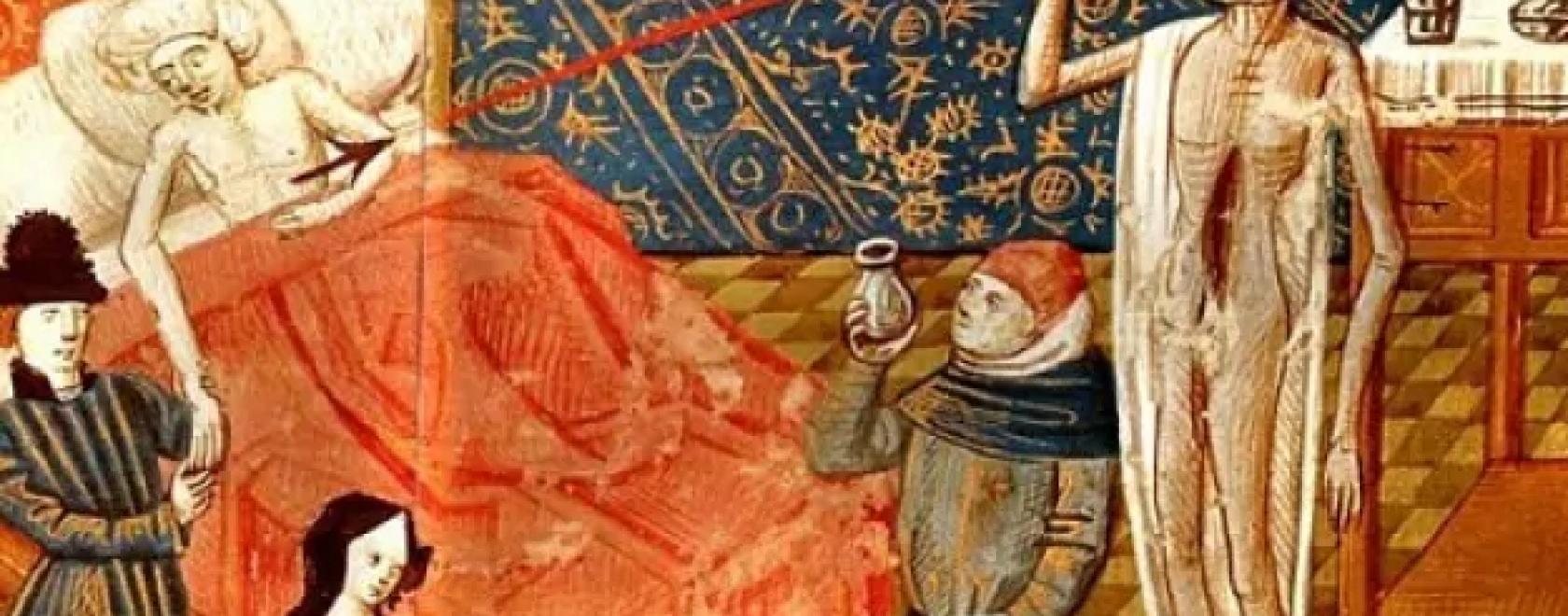Letter from the Chair
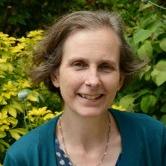
Last year, as summer mellowed into autumn, none of us knew what the new academic year would bring. Preparations for the start of term involved a familiar flurry of activities that the coronavirus pandemic has completely transformed. I think of that time wistfully, with more than a whiff of nostalgia for a world we have lost — at least temporarily. Over the past few months, the Faculty officers and administrative staff have been engaged in an unprecedented logistical and planning exercise which has involved reimagining how, where and what we teach in the context of a public health emergency.
In October, nearly 300 new students will start their studies in History, History and Politics and History and Modern Languages – a record intake produced by the Government u-turn on A-level results. We greatly look forward to their arrival in Cambridge, which seemed like a ghost town during lockdown, but is now slowly coming back to life. Their experience will inevitably be different, but we are determined that it will be no less enriching and rewarding than that of the cohorts that came before them. We will also be welcoming back existing undergraduates and postgraduates, whose resilience and adaptability in the face of tremendous challenges and uncertainties of the last six months has been inspiring to us all.
In this newsletter, we hear how COVID-19 opened up unexpected opportunities for Eleanor Russell to apply her research on the economic impact of the Black Death to illuminate the economic impact of the current crisis. We congratulate her on winning the Stanton Foundation Prize. Dr Mira Siegelberg, Lecturer in the History of International Political Thought, provides a fascinating foretaste of her major new book on the topical subject of statelessness. This issue also contains news of a pleasing array of achievements by academic staff, including the award of the Wolfson History Prize to emeritus Professor David Abulafia for his magnificent study of humanity’s relationship with the oceans, The Boundless Sea, and the Royal Historical Society’s Whitfield Prize to Dr Niamh Gallagher for her pioneering monograph on Ireland and the First World War.
Yours,
Alex Walsham
Chair of the Faculty
Alumni Festival 2020
From Thursday 17 September to Saturday 26 September, alumni can explore ideas, discover new interests and reconnect with Cambridge, wherever they are.
Now in its 30th year, the Alumni Festival is a highlight of the alumni calendar. With a programme that includes world-leading academics, exclusive behind-the-scenes tours, and star-studded speakers, this is an opportunity to see Cambridge as never before, from the comfort of your own home. The Festival brings people together from around the world to discover the latest fascinating research and reconnect with fellow alumni.
Three webinars by members of the History Faculty are on the programme this year, along with a range of other events. Follow the links to register.
Writing the Irish back into the First World War
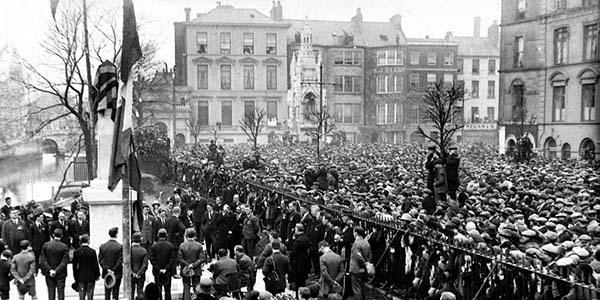
In April 2013 I was fortunate to meet an inspiring group of soldiers from the Irish army in County Cork in southern Ireland. They were part of the Cork Western Front Association and all had relatives who had served in Irish regiments of the British Army during the First World War. One of my guides, Adrian Foley, showed me the image above. The picture shows the turnout of people at the unveiling of the city’s war memorial in March 1925. If you look carefully you will see more than just a mass of people...
Mira Siegelberg
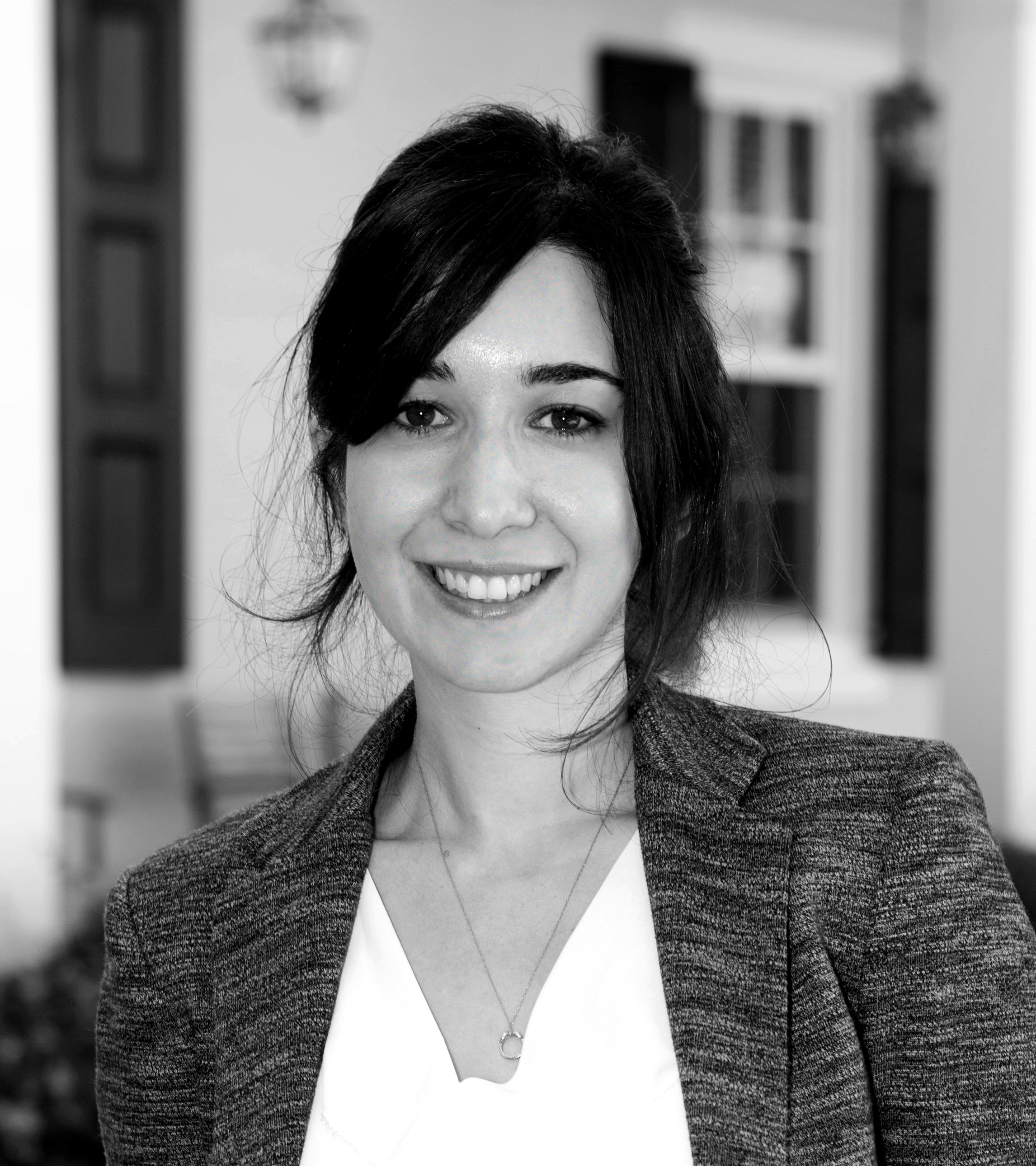
I joined the Faculty of History in 2019 as a lecturer in the history of international political thought. I’ve always been fascinated by how ideas and expectations about interstate order emerge, and how these expectations have in turn shaped global politics. My research focuses on the history of the normative and legal frameworks that define modern international order. Before coming to Cambridge, I completed a PhD in International History at Harvard University, and spent two years at the Princeton Society of Fellows, followed by three years teaching law and history at Queen Mary, University of London.
My first book, Statelessness: A Modern History, is a study of the concept of statelessness—a category that came to define the absence of national status following the First World War— and the origins of the regimes of law and rights that segment people as citizens of states and as subjects of particular international legal regimes of protection and oversight. One of the main goals of this research has been to understand the establishment of shared conceptions of citizenship and non-citizenship in the decades following the Second World War. The book looks at how the problem of statelessness informed theories of rights, sovereignty, international legal order, and cosmopolitan justice, theories developed when the conceptual and political contours of the modern interstate order were being worked out. I have been especially interested in the jurists, political thinkers, and international civil servants—particularly those from the Habsburg and Russian empires— who confronted the consequences of imperial dissolution in the twentieth century and produced the pivotal theoretical and legal sources on statelessness and international law.
The project draws together a study of the systematic and critical reflection on political and legal concepts such as the state, statelessness, and law with a range of archival sources. This approach has allowed me to comprehend the origins of the laws and institutions that govern the relationship between states and their nationals, and the role of ideas, arguments, and ideological justification in their formation. I became particularly concerned in the course of my research with how debates about legal theory—especially debates over what it means to be a person in the eyes of the law—provided a critical backdrop for the establishment of a global norm of citizenship in the mid twentieth century. One of the larger implications of this story is that the intellectual history of legal thought and international law is pivotal for comprehending the postwar international political settlement.
My new projects seek to reconsider the range of actors, institutions, and discourses involved in the conceptual formation of modern international and political order. I’m currently working on an intellectual history of the relationship between corporate persons and natural persons in legal and moral thought from the period of high corporate capitalism in the late nineteenth century through the present day. A second project examines how the mass movement of people in search of safety and economic security in the late nineteenth century spurred new ideas and institutions about how to regulate migration within and across borders.
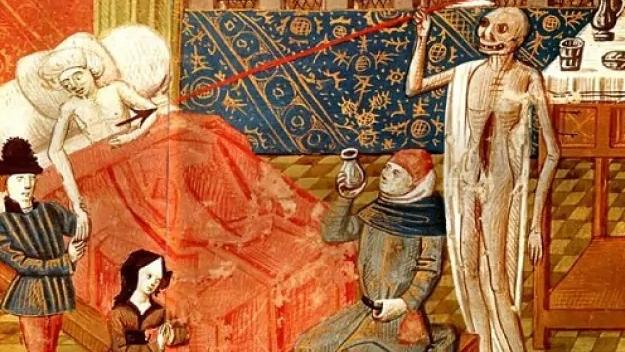
Applying History in a Pandemic
Eleanor Russel
As a late medieval and sixteenth-century historian, opportunities to directly engage with the public are relatively slim. As the COVID-19 pandemic took hold, however, many medieval historians, and interested members of the public, began publishing articles about the Black Death, Europe’s worst epidemiological disaster. I saw this as an opportunity to do public-facing work, and submitted a proposal to The Conversation, an online newspaper that issues articles written by academics for general audiences.
Many op-eds that had been published comparing the Black Death and COVID-19 discussed the bubonic plague itself, focusing upon the spread of disease, the nature and failure of containment methods, and the mortality levels. Other articles discussed the economic ramifications of the pandemic on a macroeconomic scale. I saw a gap in the discussion and thought that I might be able to talk about large companies, which were the focus of my PhD research.
In my PhD research, and in my prior studies, I had found many references to new opportunities available for wealthier companies after the Black Death. Although many of the urban rich had been killed off by the plague, which had far higher mortality rates in the crowded towns than in the countryside, later generations could benefit from the new commercial and also socio-political circumstances.
Although the modern economy, and the role of multinational corporations (which did not exist in any form in the fourteenth century) within it, is completely different from the late medieval one, I saw some general parallels between the very long-term opportunities for wealthy companies in the decades after the Black Death and the immediate benefits accrued by some modern corporations. In the current pandemic, multinationals have been far more able than smaller firms to adjust to the economic shock of the disease and the lockdown. Some, such as Amazon, have even benefited.
I proposed an article on how richer companies and merchants could, in the long term, benefit from the economic and political changes caused by the Black Death, with very loose comparisons made to COVID-19. The editors accepted my proposal and asked me to partner with an expert on modern companies, Professor Martin Parker from the University of Bristol, to write a longer article for their Insights series.
The writing process was very different from my experience in writing single-author articles and a PhD. My co-author proposed that we each write a paragraph on the economic outcomes, the governmental changes, and the attitude of the public. Given the lockdown, we wrote entirely separately, emailing back and forth segments.
Also, unlike an academic paper, the article was not peer-reviewed by other historians. This caused a few problems, as some readers thought that I was challenging the standard argument that the Black Death led to a redistribution of wealth and, also, that I was suggesting that large companies had grown in size in the aftermath of the Black Death. Without the input of academic reviewers, some ambiguities of phrase and a few typos, such as my erroneous use of the word ‘corporation’ to cover medieval as well as modern companies, had been published. Following feedback, I made revisions to the article. This was sometimes a difficult process, so I strongly urge any student thinking about writing an op-ed to ask for feedback from other historians before publishing.
During the writing process, The Conversation asked me if I would mind providing my research notes for their upcoming podcast on the Black Death. I agreed and asked if it would be possible for me to speak on the podcast as well. I thought that this was rather pushing my luck, but they agreed.
Shortly after the article was published, we were contacted to say that it had won the Stanton Foundation Prize, an award for ‘the best new Applied History article or op-ed that illuminated the COVID-19 crisis’. This was a complete surprise! The article was also republished on some other platforms, including the BBC, where it was seen by a BBC2 film group. They contacted me to ask if I’d be willing to appear in a new documentary about the impact of the Black Death upon culture. I naturally jumped at the opportunity, although I discovered that speaking on television is nowhere near as easy as it looks.
I’m not sure what the moral of this story is, but I would urge any MPhil or PhD students who see a chance to contribute to the public debate to do so. Be prepared for rejection and for negative feedback, and make sure that you seek out help and advice from other historians along the way (being too shy to do this was definitely my greatest error). That being said, it’s a fantastic opportunity, and a potentially very rewarding experience.
Studying in Quarantine
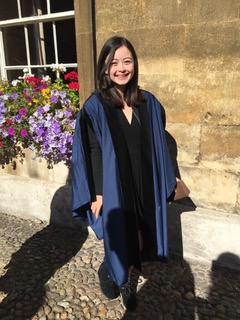
'Usually, when I’m leaving Cambridge at the end of term, I’m looking forward to a solid 15 hours of sleep and a few weeks away from the constant go-go-go of Cambridge life. But instead, the last few days of this Lent Term were filled with a sense of unease, a nagging “what if” feeling. While I had assumed, naïvely in hindsight, that my life would go on as normal despite the growing warnings about Covid-19, within a week this was upended as I booked a last-minute flight home to Switzerland while my friends frantically texted me about potential border-closures, all while I tried to pack as much as I could into one suitcase.
To abruptly realize you have six months of essentially blank time is a strange and somewhat disturbing realization', writes Olivia Bisbee, Gonville & Caius College.
I relish the structure and direction provided by our packed terms, the certainty of knowing what needs to get done and when, despite the accompanying exhaustion this can bring. Our Easter Term would usually be one of the busiest, as we prepare for five exams and look forward to May Week events. However, this was all disrupted, and instead I found myself preparing for just one online exam and a portfolio of two supervision essays.
Initially I was excited to have the extra time to work on my dissertation and summer projects, but quickly realized that this too would be different than I planned. I had hoped that the experience of conducting archival research for my dissertation would be a formative one, my first experience of ‘real’ historical work outside of the classroom. However, my vision of sifting through boxes of old documents in a dimly lit archival reading room at the Palais de Nations in Geneva has instead become one of me in my pajamas at my desk, trying to decode unorganized, half-completed online League of Nations archival material, desperately hoping that the documents I need have been digitized.
Indeed, all aspects of my work, whether it was revising for exams, researching a dissertation, or completing pre-reading for next year’s papers have become significantly more challenging when online books became the only option. This has the upside of forcing me to become more creative and flexible in making do with what’s accessible, but not being able to access the physical locations and materials that normally underpin my studies makes the work feel less exciting, even somewhat less meaningful. This isn’t to say that studying remotely is all bad: the individual nature of the work is unchanged, and supervisions and study habits have become more flexible, leaving time for extracurricular projects like society Committees or language classes. While in my case, the traditional archives and resources I intended to use were easily accessible, for others working online expands their options and allow them to research topics that previously would have required significant time, travel, or cost. Perhaps we will need to get used to working with more online resources, and to embrace them more than we currently do in our usual Cambridge work.
When, or perhaps if, we return to Cambridge in Michaelmas, things will certainly be different. We’ll have learned to be more flexible, and this will be central to the process of adjusting to a new style of learning and teaching. We might be more cautious too, more aware that things can and might change rapidly. While these changes are daunting, they provide an opportunity to expand beyond my comfort zone, to rely more on my ability to adapt than my ability to plan, and I intend to make the most of this.
A History alumnus with a difference
Oliver Thomson (Trinity 1956)
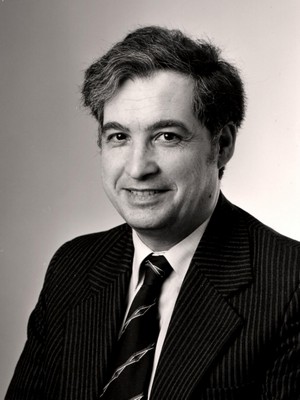
I thought at the time that I had made a mistake reading History. I had come in 1956 as a Classics scholar to Trinity, having just spent two years in Navy (National Service) and wanted to switch from Classics to Economics. But I was persuaded by my tutor that Economics wasn’t worth reading. Hence History as a sort of compromise and I had not even taken history at O-Level. Once started, I was faced with fierce competition from people who had won their scholarships studying history and for the next three years was something of a rebel.
Thus, it seemed natural that after graduating I would never pursue history as a career. In fact, I spent most of the next forty years in the advertising business. However, something had stuck. I was doing lectures to adult groups on the side, the subject changed from advertising to propaganda, and in 1977 I wrote Mass Persuasion in History, which was published in Edinburgh, New York and Tokyo-Japanese translation. In 1990 I slightly improved my credibility by doing a part-time PhD at Glasgow on English war propaganda in the 1730s. This was followed in 1999 by Easily Led-A History of Propaganda, also translated into Portuguese. In total now I have had published fifteen history books including most recently Zealots a new approach to Scotland’s role in the Wars of Three Kingdoms (2018) and Gods at War analysing three millennia of religious warfare (2019). I am still teaching history once a week to adult groups at Glasgow University and elsewhere,
So, in a slightly perverse way I do owe a very great deal to the historians who persevered with me at Cambridge. And I owe to advertising the fact that the underlying theme of all my books has been human manipulation.
Zara Steiner (1928-2020)
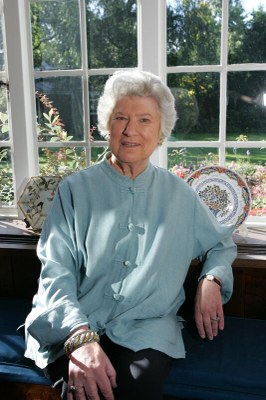
“An American, a woman and a Jew writing about the Foreign Office. It should not be allowed.” Sir Owen O’Malley’s opening remarks hardly sounded encouraging. But Zara persisted with the interview – and with the relationship. O’Malley became one of her closest FO confidants and a good friend, who bequeathed her several boxes of his papers.
That story – the prejudices, the persistence and the outcome – encapsulates the saga of Zara Steiner as a historian. She was also a devoted teacher, warmly appreciated by several decades of Cambridge students. Zara died on 13 February 2020, ten days after her husband, George.
Zara Steiner (née Shakow) grew up in New York. She got ‘hooked’ (her word) on the First World War as a student at Oxford, when she took A.J.P. Taylor’s Special Subject on ‘The Policy of the Ententes’. His main source was the printed volumes of official documents produced after 1918 by the British Government. These revealed the final policy decisions but not how they had been reached. What intrigued Zara were asides in the printed volumes to ‘minutes’ and memoranda by officials. Digging them out became the obsession of her PhD research.
The eventual result was The Foreign Office and Foreign Policy, 1898-1914 (1969). This was cutting-edge stuff for its time, bypassing the normal rules of government declassification and shedding novel light on the culture of the pre-war Foreign Office. She was therefore the ideal choice to write the British volume in Macmillan’s multinational series about the road to 1914. Some material in Britain and the Origins of the First World War (1977) grew out of her earlier book but the analysis of domestic affairs took Zara into new terrain as she mapped the economic, social and cultural influences on policymakers and also assessed the impact of ‘public opinion’. Such an approach is now axiomatic, but Zara was again a pioneer. The volume became a standard textbook; an updated edition appeared in 2003.
In 1976 she was invited to write the successor to Taylor’s classic, The Struggle for Mastery of Europe, 1848-1918. OUP’s brief was 1919-45 in a single volume, for which Zara requested ten years. In a dénouement that will be familiar to many scholars, one volume became two and ten years turned into thirty. The Lights That Failed: European International History, 1919-1933 was published in 2005, and The Triumph of the Dark: European International History, 1933-1939 appeared in 2010.
Each volume provides superb overviews of phases and topics: for example, a masterly sixty-page distillation of post-1918 reconstruction in Eastern and Central Europe. But in tandem the two books also trace a vast narrative arc, and one verging on classical tragedy. Zara did justice to the 1920s as a time of hope, rather than treating it as part of a dark valley between two world wars. She also exposed the damage wrought by the Depression during what she called the ‘hinge years of 1929-33. And yet Europe’s descent into the abyss was not inevitable. Rejecting economic determinism, she showed how the road to war in 1939 was paved with choices, gambles and bungles, played out in global interactions. The magnum opus earned her election as a Fellow of the British Academy in 2007, and won praise from a wide range of reviewers.
Many readers of the Newsletter will remember her dedicated teaching – supportive but also demanding. She was a teaching Fellow of New Hall for thirty years from 1965, serving as Acting President in 1995-6. Zara was particularly close to her doctoral students, caring about them personally as well as intellectually. Many got drawn into the domestic round at 32 Barrow Road, not least in dog-sitting and helping with IT nightmares.
Zara Steiner was in many ways a product of the post-war era – an American settled in Britain who moved easily to and fro across the Atlantic and who believed in the steady advance of Enlightenment rationality. But as the years lengthened, she and George became ever more conscious of their identity and vulnerability as Jews. The upsurge of populist nationalism in the era of Trump, Putin, Orbán and Johnson was deeply unsettling. And the revival of aggressive anti-semitism seemed an existential threat.
Zara’s two volumes therefore stand as both monument and warning. In her final years she saw the lights beginning to fail. Her hope was that this did not signal another triumph of the dark.
By David Reynolds, Emeritus Professor of International History. This is a condensed version of a longer essay accompanied by a series of remembrances by Zara’s former students. The full version can viewed here.
Staff news
We are pleased to announce the following new appointments: Dr Dror Weil will take up a permanent University Lectureship in Early Modern Asian History from April 2021. Dr Radka Šustrová joined the Faculty in March to take up a two-year Newton International Fellowship. Dr Daniel Knorr has been appointed to a four-year temporary University Lectureship in Modern Asian History; he joins us in January 2021. Dr Ruth Lawlor, a Junior Research Fellow in History at Queens College, will become a temporary University Lecturer in American History (one-year) from October 2020. Dr Jessica Patterson will become a temporary University Lecturer in the History of Political Thought (three-years), from October 2020.
We also welcome the following new Postdoctoral Fellows: Drs Marta Manzanares, Marie Sklodowska-Curie Fellow, and Rodrigo Garcia-Velsco, Rothschild Foundation Fellow.
Drs Andrew Arsan and Helen McCarthy have both been promoted to Readerships.
We are sad to record the deaths of Zara Steiner, a pioneering historian of European diplomatic history, and Peter Linehan, an eminent medieval historian. David Reynolds discusses Zara’s career in this issue. Magnus Ryan wrote about Peter’s work for the Faculty website.
Members of the Faculty won many awards and honours this year. For the full details consult our webpages. Some of the highlights include the award of the Wolfson History Prize to David Abulafia. Arthur Asseraf received a ProFutura Fellowship. Niamh Gallagher won the Whitfield Prize. Julia Guarneri won the 2019 James Carey Media Research Award. Shruti Kapila was appointed to the National Commission for Women of India. Mary Laven won the Bainton History/Theology Prize. Peter Mandler was appointed president of the Historical Association. Andrew Preston was elected vice-president of the Society for the History of American Foreign Relations (SHAFR). Paul Warde was appointed Guest Professor at KTH Stockholm.
Student news
Our graduate students’ research has also received accolades. Eleanor Russell won the Covid Challenge prize. Aoife O’Leary McNeice won the BA Irish Studies essay prize. Drs Chika Tonooka and Freddie Foks won the Prince Consort Prize.
Amongst our undergraduates, Alex Howard has been awarded the Faculty Prize for the best dissertation in Part II, not covered by another award. David Austen has been nominated for the Winifred Georgina Holgate-Pollard Prize for the most outstanding results in Part II. Phyllis Chan has been awarded the Alan Coulson prize for the best dissertation on a topic in the field of British imperial expansion for ‘The ‘Eurasian’ in the British Far East, 1930-1950’. Anya Cooper has been awarded the Sara Norton Junior Prize for the best dissertation on American Political History for ‘The Shared Vision of the 'Daughters of the American Revolution and the United Daughters of the Confederacy, 1890-1914’. Khem Rogaly won the Cambridge Historical Society prize for his dissertation entitled ‘Indigenous life and resistance in the Argentine borderlands, c.1875-1876’.
Samuel Burry and Joseph Evans were awarded prizes for the best overall performance in the History and Politics Tripos.
Martha Gartside-Mitchell was awarded the Ellen McArthur Undergraduate Prize for her dissertation entitled ‘Sex work, surveillance and everyday life in New York City, c. 1916-1930’. Robert O’Sullivan was awarded the Gladstone Memorial Prize for his dissertation entitled ‘Irish-Catholic history and the experience of Irish American sectarianism in Antebellum America’. Charlie Smith was awarded a prize for Undergraduate Achievement in Maritime History by the British Commission for Maritime History for his dissertation entitled ‘A Social History of Smuggling in North East England during the Eighteenth Century’.
Research
The Faculty’s research garnered a wide range of support this year.
Dr Melissa Calaresu and Dr Marta Mazanares (fellow) received a Marie Sklodowska Curie Individual Fellowship for ‘The Sweetest Gender: Feminine Subjectivities and the Gendering of Sweets in Barcelona’. Dr Amy Erickson received a Marc Fitch Fund Research Project Grant for ‘Regional Inequalities in Long-Term Perspective: Demographic Outcomes in Britain, c. 1580–1837’. Dr George Roberts received a Cambridge-Africa ALBORADA Trust Research Grant for ‘Decolonisation and Its Legacies in Comoros, circa 1960 to Present’; Dr Sujit Sivasundaram received a Networking Grant from SHSS and IRWG for ‘North-South Engagements between Asia and the ‘Southern Seas’’; and Professor Alex Walsham received a Cambridge-Stockholm Collaborative Research Scheme grant for ‘Religion, Body and Emotion in Early Modern Europe’.
Arts and Humanities Impact Fund grants went to Professor Richard Bourke for ‘Rosenöl und Deutscher Geist: The Fortunes of Intellectual History in Germany’ and Professor Peter Mandler for ‘Secondary Education and Social Change in the UK after 1945,’ whose project also received a Widening Participation Project Fund grant.
Dr Felix Waldmann received a Tier 1 Cambridge Humanities Research Grant for ‘After Vico: Philosophy, Politics, and the Enlightenment in Naples, 1688–1799’. Tier 2 Cambridge Humanities Research Grants went to Dr Elizabeth Foyster for ‘The Equitable Life Assurance Society and the Causes of Mortality in Britain’; Dr Shruti Kapila for ‘The Past, Present, and Future of the Psych. Clinic in India: Global Perspectives’; Professor Mary Laven for ‘Ethnic Diversity and cultural Creativity in Renaissance Italy’; and Dr Renaud Morieux for ‘Statelessness and Unsettlement in Europe, 1920’s to the Present: A Reflexive History’.
Dr Caroline Goodson received Conference Support funding from the British Academy for ‘Reassessing Rome after Empire: An Urban History Approach’. Dr Renaud Morieux received Conference Support funding from the Past & Present Society for ‘Law and Maritime Cultures Workshop’. Dr William O’Reilly received a Workshop Grant from DAAD-Cambridge Research Hub for German Studies for ‘Seeing Germany, 1450-1750’.

